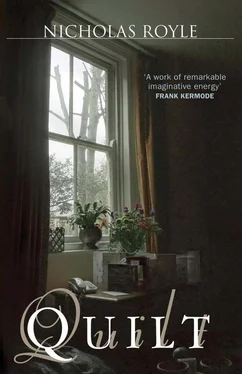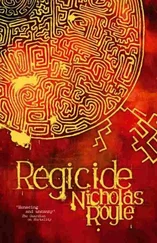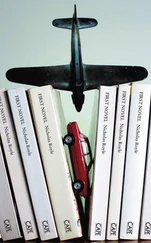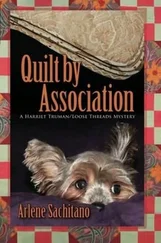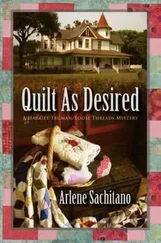Nicholas Royle - Quilt
Здесь есть возможность читать онлайн «Nicholas Royle - Quilt» весь текст электронной книги совершенно бесплатно (целиком полную версию без сокращений). В некоторых случаях можно слушать аудио, скачать через торрент в формате fb2 и присутствует краткое содержание. Год выпуска: 2011, Издательство: Myriad Editions, Жанр: Современная проза, на английском языке. Описание произведения, (предисловие) а так же отзывы посетителей доступны на портале библиотеки ЛибКат.
- Название:Quilt
- Автор:
- Издательство:Myriad Editions
- Жанр:
- Год:2011
- ISBN:нет данных
- Рейтинг книги:4 / 5. Голосов: 1
-
Избранное:Добавить в избранное
- Отзывы:
-
Ваша оценка:
- 80
- 1
- 2
- 3
- 4
- 5
Quilt: краткое содержание, описание и аннотация
Предлагаем к чтению аннотацию, описание, краткое содержание или предисловие (зависит от того, что написал сам автор книги «Quilt»). Если вы не нашли необходимую информацию о книге — напишите в комментариях, мы постараемся отыскать её.
Quilt — читать онлайн бесплатно полную книгу (весь текст) целиком
Ниже представлен текст книги, разбитый по страницам. Система сохранения места последней прочитанной страницы, позволяет с удобством читать онлайн бесплатно книгу «Quilt», без необходимости каждый раз заново искать на чём Вы остановились. Поставьте закладку, и сможете в любой момент перейти на страницу, на которой закончили чтение.
Интервал:
Закладка:
— The last thing in the world you should do to a ray, he says, is stroke it, not to mention exclaim aloud, as I have heard people do in marine-life centres around the world, Ooh, it doesn’t feel like anything I felt before, or It feels, ugh, like fondling a giant frog, or Just like wet rubber , and so on. The sooner the world is rid of touchpools the sooner people might start properly respecting these extraordinary creatures. I say the last thing in the world, but (and here his gaze wanders away beyond the church-goers, and beyond the cousin and wife who had been stuck in traffic on the road from London but have now appeared at the door and mutely joined the others) actually I have witnessed worse something even more disgraceful in the case of a sea-life centre on the eastern seaboard of the United States. An official was seated right beside the touchpool, with a cap pulled down over his eyes, while a group of boys not all that much older than you , I shouldn’t imagine (his raised right forefinger here directly trained on the cousin’s boy near the edge), played at pulling their tails as they went gliding past. The boys thought this was just such a hoot and the official, employed it should be said by a company purportedly committed to the preservation of our great marine world and all the inhabitants of our oceans , merely maintained a blind eye. They were trying to catch then tug along the rays by their tails, worse than swinging cats, and of course the only reason why these little horrors , these mindless shrimps who might have taken a different attitude to the whole thing if they had been warned in advance of having testosterone whipped out of them with piano-wire , the only reason why they were able to do what they did — besides the grotesque and wilful neglect of the fake-dozing official — was because the stings of these rays had been removed. I allude here to an act of barbarity regarding not just the spines but the bulk of the tails altogether, a barbarity most readily appreciated by visiting one of these marine concentration camps, I choose my words carefully, these commercialised marine torture chambers, and witness for yourselves the amputations and the torture chambers and for the ray, for the rays –
He loses his thread and breaks off what was in danger of becoming a rant. He calls to his cousin and the wife whose name, alas, escapes him, please to come in and have a glass of wine or a cup of tea, as he makes his way across the room to welcome them both.
Then his mischievous aunt, always one for keeping up a comical or embarrassing situation if she can, calls out in a high-pitched theatrical voice:
— And tell us, pray: what are the creatures’ names, my dear?
And a few of the mourners laugh and he, suddenly mindful of a family of Jehovah’s Witnesses, also known to the aunt (but very far, in fact, from her mind), who were once just an ordinary sad bunch of people but became permanently radiant-faced after getting the glory, replies with all due gravity:
Taylor, Audrey, Hilary and Mallarmé, one male and three females.

Sometimes a house is bigger than a heart, an apparently crazy thought, scarcely stands to irreason: a house is always bigger. But the thinker of the heart knows that in its pull, voracity, embrace and engulfing power it is at least as colossal as the mouth: it sucks up an ocean, casts out decades, burns down at a quiver forest after forest, searing soaring seeking or holding onto its prey, its inseparable maker, in a valley of kings of its own making. But sometimes a house is bigger. You can huff and you can puff but the walls won’t give, making the heart collapse, taking it all in at its own pace, a matter of a minute or a year and the house has prised open the heart and built itself so big inside it sprawls out finally standing alone with the heart pulverised, faked within, beyond repair. She recognises this in you and fears you have no sense of it. You know nothing of this.
Three days after the funeral you drive her to Heathrow. In the receding visibility of the security line winding towards the departure lounge, her green shoes and lower body already gone, she turns back and sees you in tears, but she is always weeping first. It is unclear when you will next see one another, if ever, this miraculous relationship that has been going on already for years; she is fearful for you to the trembling tips of her fingers for what will happen now as you head back down the long road west through the summer dusk anxious already for the creatures abandoned that morning. There is the calm of water-lights, the shade and cool of this other world restfully alert to the eye, buried in time, the placid underworld and prehistoric clarity of sitting beside the great tank and watching. You establish a routine in your solitude as keeper, maintaining the quality of the water with the pH value at seven, and the temperature thermostatically regulated to between 24 and 27ºC, ensuring a good supply of oxygen to the tank via the filter outlet, removing faeces and left-over food from the substrate using the vacuum siphon, making regular partial water changes to the tank to avoid the build-up of ammonia, nitrite and nitrate, and of course feeding these creatures, securing the appropriate supplies of shrimp, whitefish, perch, occasionally mussels and squid, as well as earthworms, along with a variety of plant foods such as cucumber and lettuce leaves.

In the doldrums of grief these blazing dog-days alone unflaggingly you patrol the extensive gardens on a small tractor, cutting the chaotic former lawns back to something resembling a controlled state, weeding the former flowerbeds, assaulting the high hedges toting an electric hedge-trimmer like a machine-gun, sweat pouring off you as you shift load after load of grass and weeds and hedge-cuttings dry as a tinderbox down to the bottom of the garden to stack it up on a fire along with the steady flow of combustible material from inside the house, the innumerable papers bills pieces of correspondence, bits of bereft wood from here or there. In the dazzling heat of these raw grief-days you work with mole-like speed and feverish determination to clear as much as you can of the jungle that was once garden, your father’s swards, your mother’s joy untended, the flowerbeds infuriated with brambles nettles thistles and other weeds, all orderliness choked up in the two and a half years since she died, and making sorties into the drawing room cupboards and bureau-drawers and edging your way furtively, unsteadily, eyes swimming, before setting foot in the end in your father’s study, ruinous reliquary of the all-in archive and bibliography of remains.
You encounter, but it is already too late, your father’s things: the sturdy, built-in, ceiling-high shelves of old books never read or read in youth fifty or sixty years ago, gathering dust more or less untouched ever since, the numerous boxes and cases and cabinets stuffed, the diffuse array of small wooden tables, some of them of your father’s own construction, and the great oak desk piled high with all the gubbins of the inveterate pipe-smoker and former proof-reader and graphic design artist, the papers, the pens, the rulers and magnifying glasses, the erasers, paper knives, inks, ashtrays, debris of stationery, calendars, jottings, newspaper clippings and other memoranda stretching back twenty-five years or more on the surface of the desk alone, untouched since his wife, some four or five years earlier, acted a madness of Miss Havisham in reverse, blundering into her husband’s sanctuary, careering maniacally tipping over tables, pushing over pictures, like the strangely unreal stylised portrait of her father-in-law taken in a photographer’s studio in Ealing in the 1930s, scattering papers and implements, tearing down books, since which time he stopped working in his study or stopped retreating there to sit in his melancholy old age, taking temporary respite from the otherwise more or less constant responsibility of looking after his beloved wife, mad as an attic as she was, and never again disturbing the disturbance she had created in that berserk interlude but letting the place be, archive of chaos, overrun by spiders and mice.
Читать дальшеИнтервал:
Закладка:
Похожие книги на «Quilt»
Представляем Вашему вниманию похожие книги на «Quilt» списком для выбора. Мы отобрали схожую по названию и смыслу литературу в надежде предоставить читателям больше вариантов отыскать новые, интересные, ещё непрочитанные произведения.
Обсуждение, отзывы о книге «Quilt» и просто собственные мнения читателей. Оставьте ваши комментарии, напишите, что Вы думаете о произведении, его смысле или главных героях. Укажите что конкретно понравилось, а что нет, и почему Вы так считаете.
